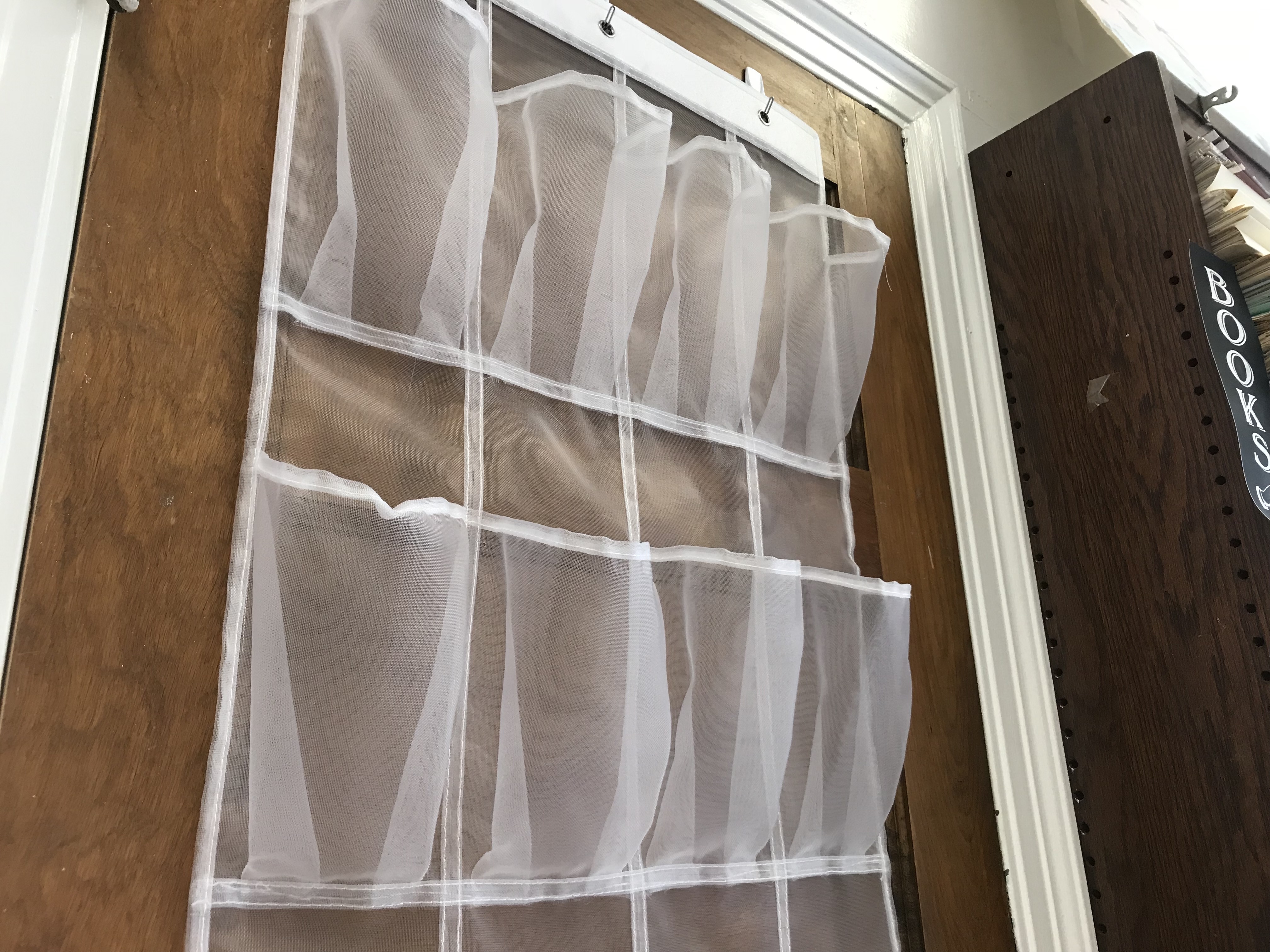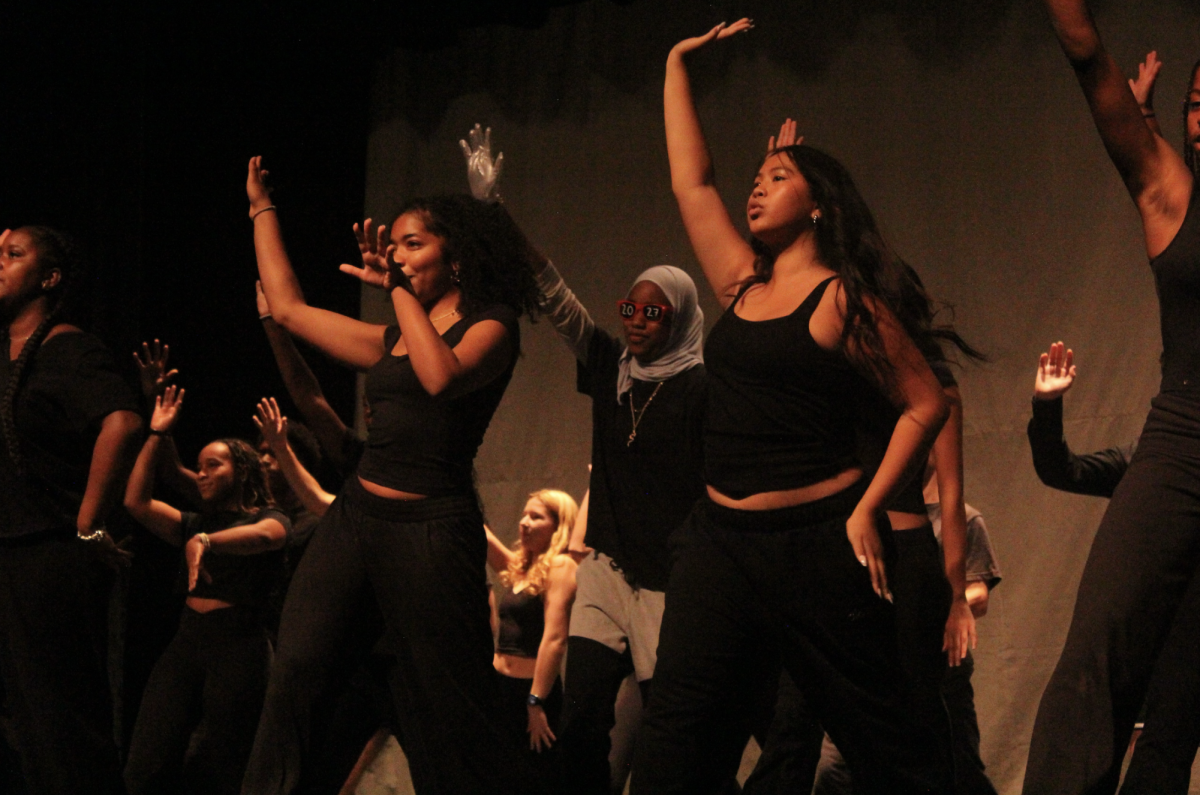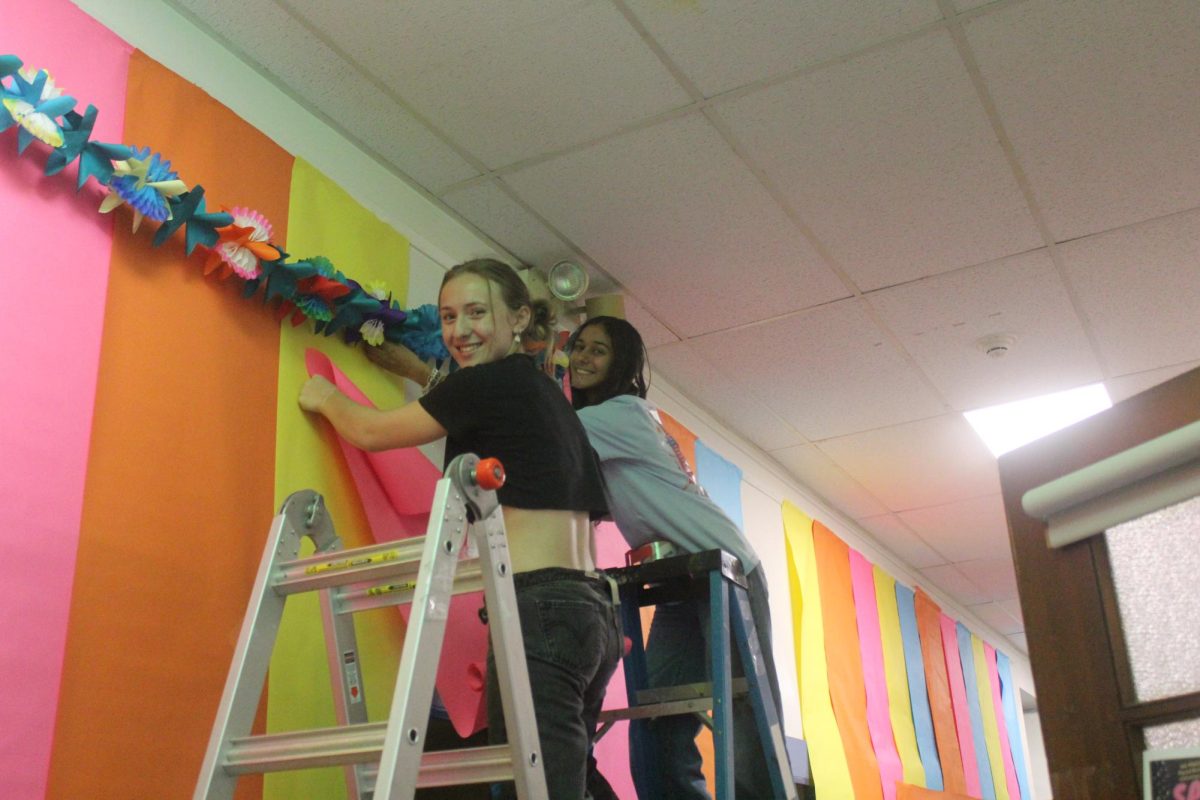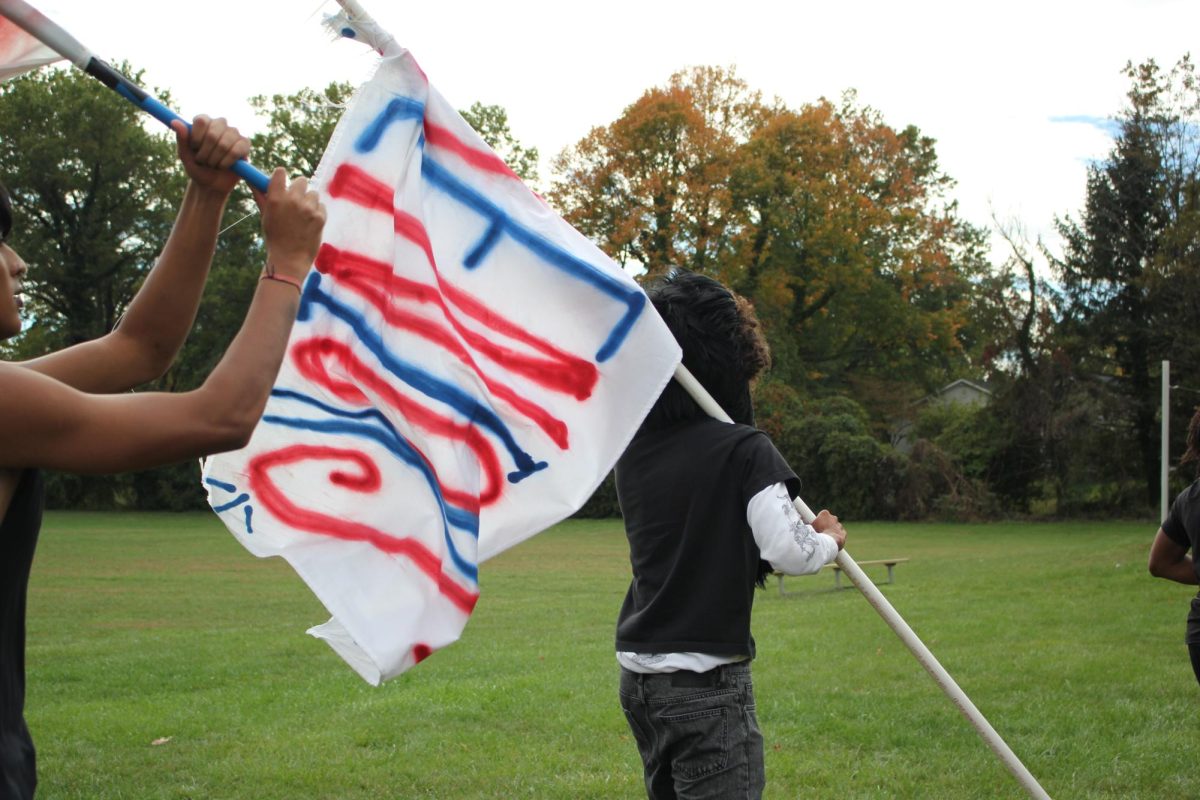By Serena Lin ’19 and Sam Bitman ’21

Initial Implementation
At the end of last year, a new cell phone policy was gradually implemented in the Upper School. When students returned this school year, cell phone pockets became ubiquitous in Upper School classrooms. Most teachers began to collect students’ cell phones, whether by collecting them in a pocket or bin or requesting that students leave them all on a desk.
This school-wide procedure seemingly marked a departure from previous approaches, which allowed teachers to make individual rules regarding phones in their classrooms. However, as the 2018-2019 school year progressed, feelings of uncertainty and inconsistency in policy enforcement regarding the procedure became apparent.
How Is It Holding Up?
Not all Upper School teachers have taken the same approach to the cell phone procedure. Senior Micaela Coll said that her teachers do not consistently require students to place phones within a cell phone holder.
Head of the Upper School Meredith Godley made it clear that the usage of pockets is presently optional, but “the idea is that we do want to be consistent [in] sending the message that we don’t want kids on their phones during class time unless it’s for something relevant to something that’s being taught at the time.”
Godley said, “There were some [faculty] that felt like… it should be a policy across the board that every teacher should use the cell phone pockets.”
There was some disagreement among faculty on whether the collection of cell phones, in pockets or otherwise, should be a policy for every class. Godley stated that she plans on regrouping after the first quarter or first semester to see “how the faculty feel.”
Within the language department, cell phones are often used for activities such as Kahoot and Quizlet Live. Li Li, an Upper School Chinese teacher, includes student cell phone usage in her curriculum. She uses the cell phone pockets situationally, but not for each and every class.
Rob Nasatir, an Upper School Spanish teacher, similarly incorporates some cell phone usage into his teaching. Nasatir generally feels that having students retrieve their cellphones for Kahoot or Quizlet Live does not use up much class time.
Does It Work?
Junior Julia Holliday doesn’t feel as though the procedure made a difference in classroom conduct. She said that the procedure takes up more class time because “teachers are more focused on making sure that phones are put away.”
Holliday also pointed out that some teachers are more strict with enforcing that every student’s phone is in the cell phone pocket.
While there are varying opinions among students regarding the cell phone procedure, faculty tend to think of it as effective.
History teacher Jackie Scully thinks that the new policy allows “students to engage with each other more,” as the policy limits students checking their phones in downtime or during group discussion time.
Nasatir said, “It is a much more productive classroom, whether or not [students] are participating.”
Both faculty and parents have expressed approval of the new procedure to Godley. She said, “Overall, it’s empowering teachers to really just focus on the material that is being taught.”
Fire Drill
On September 20th, a fire drill proved to be a new test for the cell phone procedure. In some Upper School classrooms, students retrieved their phones from cell phones holders, delaying their exit from the building. In other cases, teachers brought their bins of student cell phones outside with them.
Some students expressed that in cases of a real emergency, they would want to use cell phones to contact family members. Others said that they knew that the September 20th fire alarm was a drill and wanted to have their phones while they were waiting outside.
Sophomore Rebecca Benjamin thinks that “many kids will try and collect their phones, and then you’ll have a pile up at the pockets… it won’t be the flow that you need during a drill.”
Godley believed that students retrieving their cell phones during a drill is “absolutely a safety issue,” and that they should not do so.
Godley said that when it comes to fire drills, “the priority is getting out of the building as quickly as you can.”
She also expressed that MFS administration has designated plans for communicating with emergency personnel and family members in the event of an emergency. Additionally, she stated, “We have a whole infrastructure in place for communicating with the emergency contact numbers.”
This was reiterated in Upper School announcements for the week of October 15-19: “Students should NOT collect their cell phones from cell phone pockets/bins before heading outside for a drill. It is important to exit the building as soon as possible. Faculty will have communication devices in the event of an emergency.”
In Summary
As with all comprehensive changes, the cell phone procedure is still developing. Presently, there is no Upper-School-wide policy mandating that every teacher collect cell phones, using a pocket or otherwise. In the same vein, there is no cell-phone-specific fire drill policy.
In the coming month, Upper School faculty are planning to revisit the procedure and possibly make changes. WordsWorth will be following up on this story should any changes be implemented.





